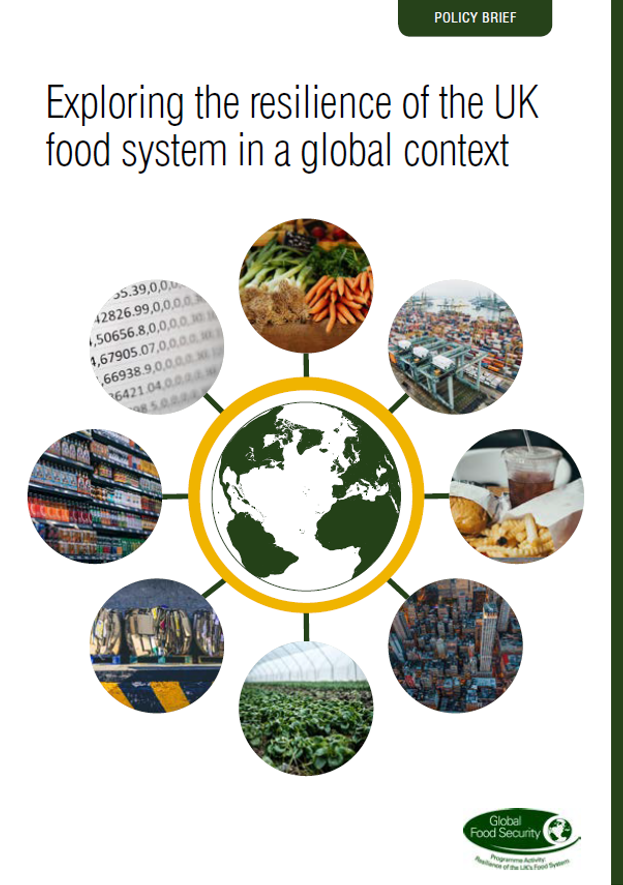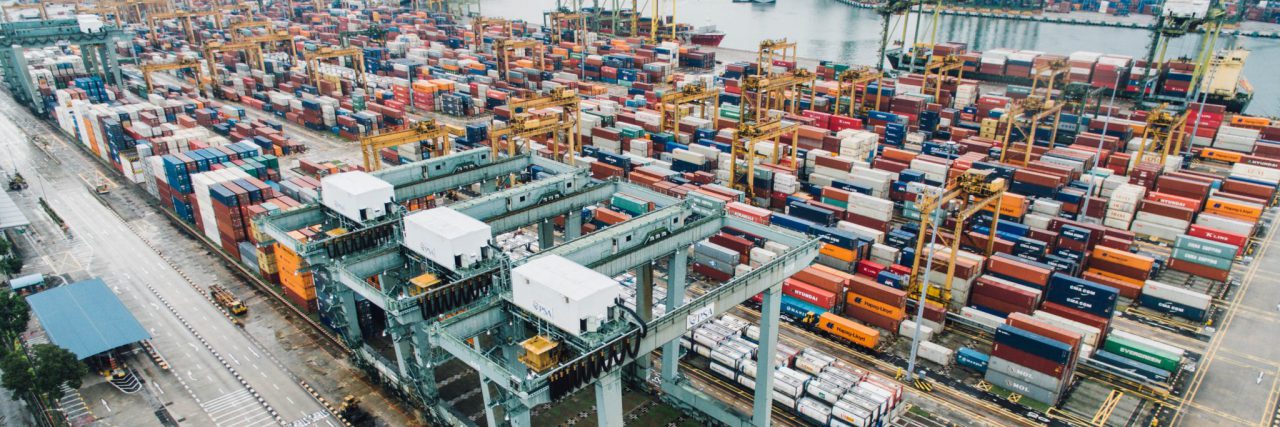The Global Food Security’s ‘Resilience of the UK Food System in a Global Context’ (GFS-FSR) programme has launched the policy brief ‘Exploring the resilience of the UK food system in a global context’ , in which it highlights the complexity of the UK food system. Despite this sector contributing approximately £111 billion annually to the UK economy, our food availability is vulnerable to disruption on account of the UK importing around half of its food and demanding a wide range of foodstuffs all year round. Food supply can be affected by short-term shocks such as an extreme weather event, as well as longer-term stresses like climate change. Enhancing the UK food system’s resilience to such shocks and stresses will ensure greater national food security.
“The need for resilience thinking is more vital than ever,” said John Ingram, GFS-FSR Coordination Team Leader and co-author of the policy brief. “The nature of stresses and shocks is becoming ever clearer, and we need to be able to ensure healthy diets from sustainable food systems into the future.”
The report considers the notion of resilience from a number of angles:
- Robustness: the ability of the food system to resist disruptions to desired outcomes
- Recovery: the ability of the food system to return to desired outcomes following disruption
- Re-orientation: the ability of food system actors to accept alternative outcomes following disruption
It also outlines different pathways towards food system resilience:
- Adapting food system activities, e.g. processing or consuming food differently
- Adapting food system drivers, e.g. changing food production policies or subsidies
- Adapting our expectations of what we want from food systems, e.g. a different balance between profit and environmental outcomes
Furthermore, the policy brief provides an overview the 13 research projects that have been funded through the five-year GFS-FSR programme. All projects aim to help policymakers and practitioners optimise the resilience of the UK’s food system to environmental, biological, economic, social and geopolitical shocks. The interdisciplinary projects cover a variety of topics, from examining how beef cattle and sheep farmers in upland areas of the UK can improve their resilience to environmental, economic, and social change, to how the ruralisation of our urban areas (or ‘rurbanisation’) might play a part in increasing the availability of and access to fruit and vegetables given uncertain futures.
“We hope different actors in the food system will consider these concepts of resilience and feed back what they mean to their activities,” said John. “Coordinated policy development across both public and private sectors will be critically important.”
The policy brief is available to download below.

Exploring the resilience of the UK food system in a global context
This policy brief, produced by GFS’ major interdisciplinary research programme ‘Resilience of the UK Food System in a Global Context’ (GFS-FSR), describes the importance of enhancing the resilience of the UK’s food system and how resilience thinking could be applied to the UK food system.
(You can view PDF documents by downloading a PDF reader. We recommend using Google Chrome or Mozilla Firefox web browsers.)
Notes to editors
Global Food Security (GFS) is a multi-agency programme, hosted by UK Research and Innovation, bringing together the main UK funders of research and training relating to food. GFS publications provide balanced analysis of food security issues on the basis of current evidence, for use by policy-makers and practitioners.


